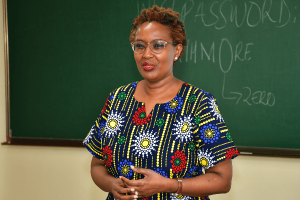Lecture on Diplomatic and Consular Immunity Delivered by Dept.Ambassador Joakim Kamere on 23rd February 2021

Introduction
Deputy ambassador Joakim Kamere is an advocate of the High Court of Kenya, Notary public, Commissioner of Oaths, and a certified Public Secretary-CPS(K). He holds a Bachelor of Law degree from the University of Nairobi and has 16 years’ worth of experience in the corporate-commercial field in corporate governance, structuring companies, drafting commercial agreements, perfection of bank securities and legislative drafting. He is currently the deputy ambassador of Kenya to the UK, based in London. His current capacity and expertise made him the best person to deliver the lecture on this topic.
Diplomatic and Consular Immunity
The lecture was divided into three parts: The Nature and basis of diplomatic and consular relations, Privileges of those enjoying immunities and Immunities of International Organizations.
The first part dealt with the definition and nature of diplomatic relations. The two main treaties where immunity is established were highlighted, which are: The Vienna Convention on Diplomatic Relations (1961) which codifies diplomatic relations between signatory states, and the Vienna Convention on Consular Relations (1963) which grants diplomatic privileges/immunities to ambassadors and officers in consulates.
The second part outlined the privileges and immunities codified in the Vienna Convention on Diplomatic Relations 1961.These were: Article 9 (declaration of persona non-grata), Article 22 (solemnity of a mission, embassy and consulate premises), Article 24( protection of archives and documents of a diplomatic mission), Article 27( right to free communication between diplomats and other states) and Article 29 (the immunity of diplomats from arrest, detention and prosecution as an absolute immunity).
The final part dealt with immunity of international organisations. The applicable law highlighted is the Privileges and Immunities Act (Cap 179). Sections 9 and 17 outline the procedure to grant immunity to an organization. The immunity in these instances will apply in so far as the actions are conducted in execution of their duties. It can be conferred either by host agreement, a memorandum of understanding or a charter.
In concluding the lecture, Ambassador Kamere highlighted three Kenyan case studies. The first was Josephine Wairimu Njoki v ICRC (2010) eKLR where the claimant had an accident with a vehicle that was registered to the respondent and was pursuing damages. The case was dismissed as the ICRC had been granted immunity by the minister.
The second was Equatorial Guinea v France ICJ (2020) and the third was Karen Njeri Kandie v Shelter Afrique and Alissane Ba (2015) eKLR. In this case the court held that the Managing Director of Shelter Afrique Alissane Ba was immune as actions complained of were done in the premises of the company which had immunity conferred to it.
At the end of the lecture, he answered the questions asked by the students. It was stressed that the provisions under the Vienna Conventions are absolute and therefore any action taken against persons enjoying immunity would require a waiver of that immunity. He also encouraged us to pursue our law degree with diligence since there are great opportunities awaiting those prepared to seize them. The cherry on the cake was his promise to assist any of the students in their future endeavours to the extent of his capability. Overall, the lecture was very informative, insightful, and highly engaging.
Prepared by Effie Okola and Phoebe Mwangi.



